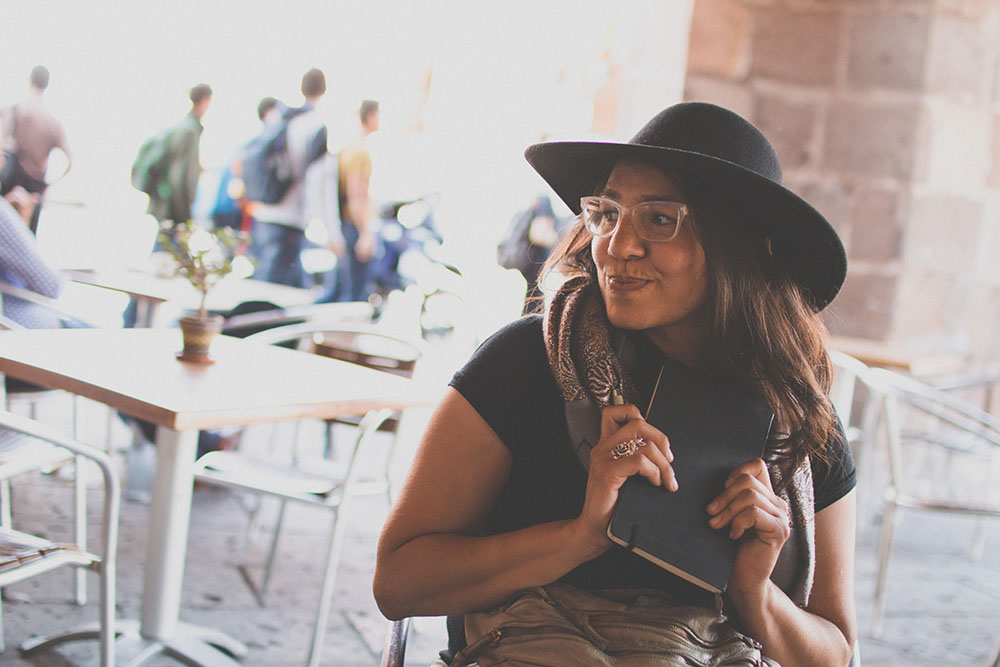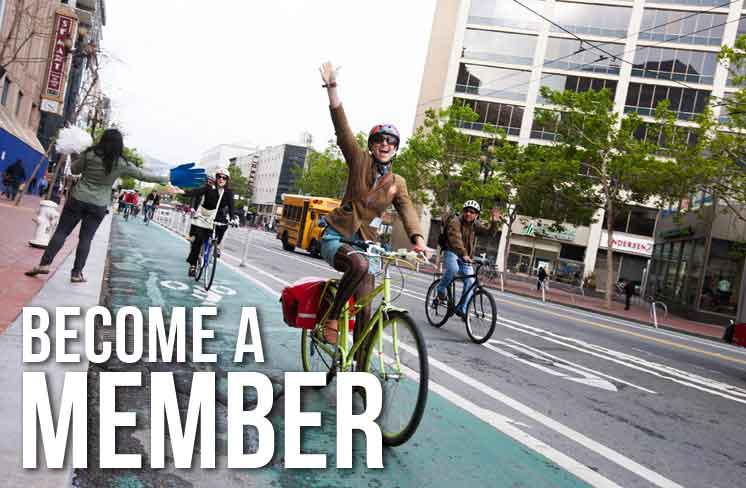Photo by Sebastian Chavez.
For over a decade, Katie Styer has biked the Bay Area and seen dramatic changes to our streets. Katie co-directs Oakland community radio station, KGPC-LP 96.9FM and hosts Oakland Bikes!, a radio show on race, gender, class and bicycles in the Bay Area. We are excited that she will be moderating our Jan. 24 panel Let’s Talk: Intersectional Feminism and Biking. Will you join the conversation?
We interviewed Katie to find out more about her experience with biking in the region.
SF Bicycle Coalition: When did you start biking in the Bay Area?
Katie: I started cycling in San Francisco in 2004 when the bicycle infrastructure was in a very different place than it is today. It was my second year of college; I needed to travel two miles from my apartment to the grocery store, and my bus line was unreliable and too expensive for me at the time. So I started cycling to be able to meet my needs in the face of temporary poverty.
How has cycling changed the way you interact with the city?
At first the bike was more of a tool than a toy. But I soon became exposed to that which the bus and train kept at bay: changes in the air temperature, the scent of night-blooming jasmine, wafting music from a darkened doorway, fleeting smiles and eye contact from passersby on the sidewalks. It was like unlocking another level of cycling. I began riding for pleasure, to explore and to go fast. I quickly developed an affinity for the more adrenaline-producing, intense cycling styles. Upgrades to my mom’s old maroon Peugeot mixte made it a far sleeker steed.
What are some changes that you’d like to see for people biking in San Francisco?
I would love to see fewer cars on the road. I would love to see separated bike lanes that don’t share a side with parked cars. I would love to see bus rapid transit lines on arterial streets so bikes aren’t forced to compete for space with buses pulling up to sidewalks to board passengers. I would love to see dignified, self-determined space held for the low-income cycling community in the city. How are their needs being met? Do they have a seat at the table? Are solutions by their design?
What aspect of your work at Oakland Bikes! are you most proud of?
I’ve been working towards being a radio producer since I was a young teen inspired by the storytelling formats of This American Life’s Ira Glass and Storycorps’ Dave Isay. Oakland Bikes! is an effort to hold space for the suppressed voices of oppressed communities and bust up the reality that often white men are the storytellers.
How do you see biking as an intersectional issue?
The bicycle is used by many communities across economic, racial and ethnic groups, countries, and all gender variants. Non-English speaking day laborers and the San Francisco elite bike. Women, who are still paid less than men, and women of color, who are still paid less than white women, use bikes to get to work, experience the world, and strengthen their bodies and minds. Bicycles are a revolutionary tools, allowing us to be self-reliant and move about the world on our terms. Moreover by choosing to bike instead of burning fossil fuels, we are working against climate change, which globally affects poor women of color most. Because bikes have the power to lift up members of oppressed, subjugated communities and move them forward, they are intrinsic to discussions of intersectional feminism.
Want to talk more about intersectional feminism and biking, and meet other like-minded people who bike? Join us at Let’s Talk: Intersectional Feminism and Biking, a panel on Jan. 24.


